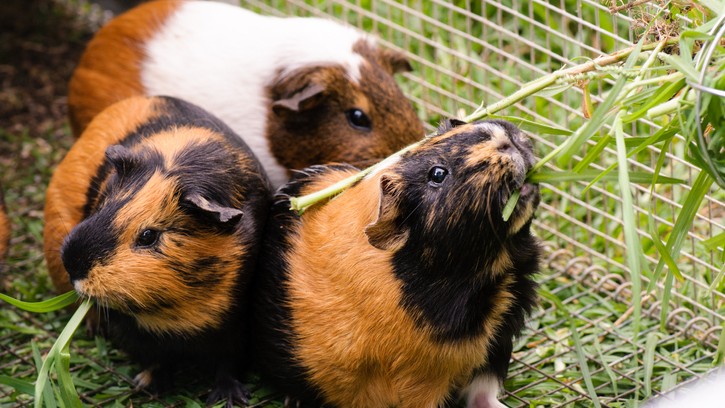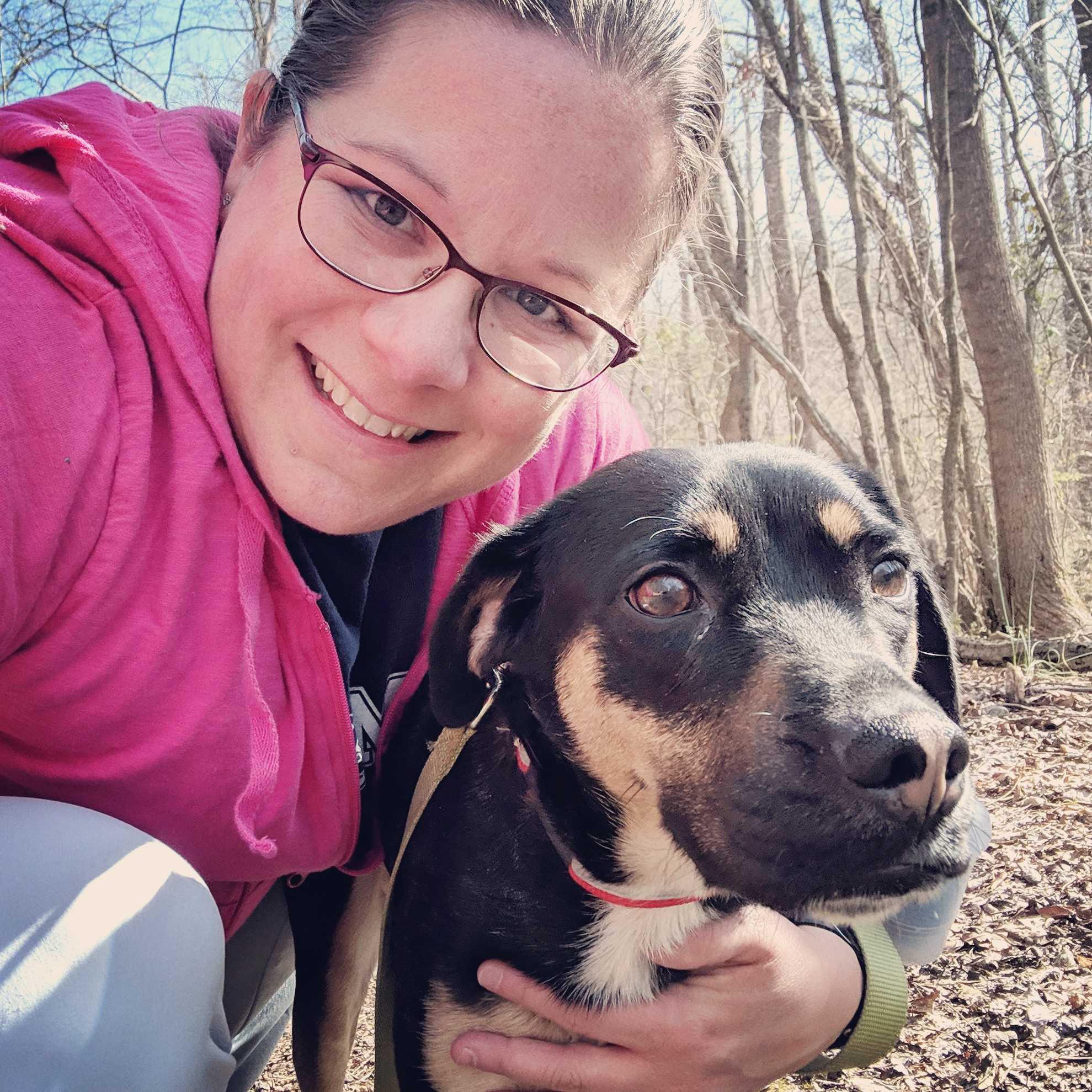10 things to know before you adopt a guinea pig
Looking to adopt a guinea pig? Read our vet's guide first

It might be time to adopt a guinea pig if you’re looking for a sweet, cuddly, trainable, and playful companion. However, just like with any other pet, it’s important to do your research first, before you commit to a new pet. For instance, you should find out how long guinea pigs live for and which are the best guinea pig accessories. Although guinea pigs are small pets, like hamsters and mice, they have some unique care requirements that you must prepare for before bringing them home.
- Five popular guinea pig breeds: Which breed suits you best?
- Do guinea pigs sleep? Five tips from a vet for keeping your guinea pig healthy
- Best hamster toys: Amazing accessories for a happy hamster
- Pets at Home Foxglove Guinea Pig and Rabbit Hutch review
1. Guinea pigs do best with a companion
Guinea pigs are social animals. While they enjoy bonding with their human owners, they often do best if they are housed with another guinea pig. Consider adopting two guinea pigs at the same time, so that they can enjoy each other’s companionship. If you do opt for this option, be sure that both guinea pigs are of the same sex so you don’t find yourself with an unexpected litter!
2. Guinea pigs require a substantial commitment
While it’s easy to view a guinea pig as a low-maintenance pet, the reality is that they will require time and energy for a period of several years. In addition to the time you'll spend preparing your guinea pig’s diet and cleaning their enclosure, your guinea pig will also require daily social interaction and time outside of the cage. Guinea pigs typically live for five to eight years, so you need to ensure that you’re comfortable providing this daily interaction and care for the remainder of your guinea pig’s lifespan. (If your long-term plans are up in the air, adopting an older guinea pig may be a good option.)
3. Guinea pigs require vegetables and hay, in addition to guinea pig food
Commercially available guinea pig foods can meet many of your guinea pig’s needs, but not all of them. In addition to a commercial pelleted diet, guinea pigs should also be fed fresh vegetables and hay on a daily basis. The fiber that is supplied through hay and vegetables is essential to keeping your guinea pig’s teeth and digestive tract in proper working condition. Vegetables also help supply necessary vitamins. Fruit can be given as a special treat, but only in limited amounts because it can contribute to obesity.
4. Guinea pigs require daily vitamin C supplementation
While commercial guinea pig foods are formulated to meet most of a guinea pig’s nutritional needs, they cannot meet a guinea pig’s entire vitamin C requirement. Vitamin C does not remain stable enough in stored food to meet your guinea pig’s needs. Certain vegetables are high in vitamin C, such as kale and broccoli, so incorporating these into your guinea pig’s diet can help increase vitamin C consumption. Many guinea pig owners also give a daily vitamin C supplement (in the form of tablets or drops that are added to the drinking water) to prevent their guinea pig from developing scurvy.

5. Guinea pigs require a large enclosure
At any pet supply store, you’re likely to see a wide variety of enclosures marketed as guinea pig cages. Unfortunately, many of these cages are too small for even a single guinea pig, much less two guinea pigs. A single guinea pig should be kept in an enclosure with at least 7.5 square feet of floor space (30 x 36 inches is a common size), while a pair of guinea pigs should have approximately 10.5 feet of floor space (or 30 x 50-inch cage). Also, it’s important to make sure that your enclosure does not require your guinea pig to stand on a wire grate, because this can cause foot infections. Instead, your guinea pig should walk, sleep, and play directly in soft bedding. Take a look at our guide to the best rabbit runs for some options.
6. Guinea pigs should not be kept on wood shavings
Although you will often see pine and cedar shavings recommended as bedding for rodent cages, these are not the best option for guinea pigs. Both cedar and pine are thought to release substances that can have harmful effects on guinea pigs and other small animal pets. Additionally, wood shavings can often aggravate humans within the home by contributing to allergies and asthma. Instead, look for paper-based bedding. You can even use torn strips of paper or newspaper as bedding. If you must use wood shavings, consider aspen or maple.
7. Guinea pig enclosures should be cleaned at least once a week
Guinea pigs eat a lot of food, including high-fiber materials such as vegetables and hay. Therefore, guinea pigs produce a lot of feces! At least once a week, you will need to thoroughly clean your guinea pig’s cage. First, scoop all of the bedding from the cage and throw it away. Next, clean the entire cage with a gentle cleaner. You can purchase pet-safe cleaners at a pet supply store or create your own by making a 1:1 mixture of vinegar and water. After thoroughly wiping down the enclosure, be sure to properly rinse the enclosure (with water), and dry it, before replacing bedding. Between weekly cleanings, you can use a dustpan or other scoops to remove small areas of heavily soiled bedding.
8. Guinea pigs can be noisy
While guinea pigs can be quiet little animals, contentedly munching away on their hay, they can also be exceptionally noisy! If they’re excited or they want attention, guinea pigs make a loud squeal, also known as a “wheek,” that can definitely get your attention from across the room. When you’re considering where to place your guinea pig’s enclosure, it’s important to take this into account. You may want to avoid placing your guinea pig in your bedroom or in another area of the house where you will want quiet.
9. Guinea pigs can trigger significant allergies in people
Over the course of my career, I’ve worked in a number of veterinary clinics. Most of those clinics had at least one employee, sometimes more, with a significant guinea pig allergy. Guinea pig allergies are similar to allergies that humans develop to cats or other animals, running the range from mild to severe. Affected individuals may develop sneezing, a runny nose, itchy eyes, a skin rash, a cough, or even shortness of breath. Before adopting a guinea pig, it’s important that you and your household spend some time around these animals to ensure that you don’t have a guinea pig allergy.
10. Guinea pigs require veterinary care, just like other pets
Like dogs and cats, guinea pigs require regular veterinary care. Your guinea pig should see a veterinarian at least once a year for a wellness exam, to ensure that no changes in diet or care are needed. Your guinea pig will also need veterinary care any time that he or she is ill. Before bringing home your new guinea pig, seek out a veterinarian in your area who will be comfortable treating your pet, so that you can arrange a new pet examination as soon as possible.
Are guinea pigs worth the effort?
While guinea pig ownership may sound overly complicated, the truth is that guinea pigs require preparation, care, and attention in order to thrive. If you are able to invest the energy to properly care for a guinea pig, however, they can be excellent companions! Guinea pigs are friendly, inquisitive, and easily trainable. The decision to adopt a guinea pig can provide you and your family with years of companionship.
PetsRadar Newsletter
Get the best advice, tips and top tech for your beloved Pets
Dr. Barnette is a graduate of the University of Florida, where she received both her B.S. in Zoology and her Doctor of Veterinary Medicine (DVM). She has 15 years of clinical experience as a small animal veterinarian, treating dogs, cats, and occasional exotic patients. She now works as a freelance veterinary writer, creating educational content for veterinarians, veterinary team members, and dedicated pet owners. Dr. Barnette lives in southwest Florida with her husband and daughter (plus two cats, a dog, and a rescued dove!) and enjoys kayaking, biking, and hiking. Learn more about Dr. Barnette at www.linkedin.com/in/catherinebarnette.

